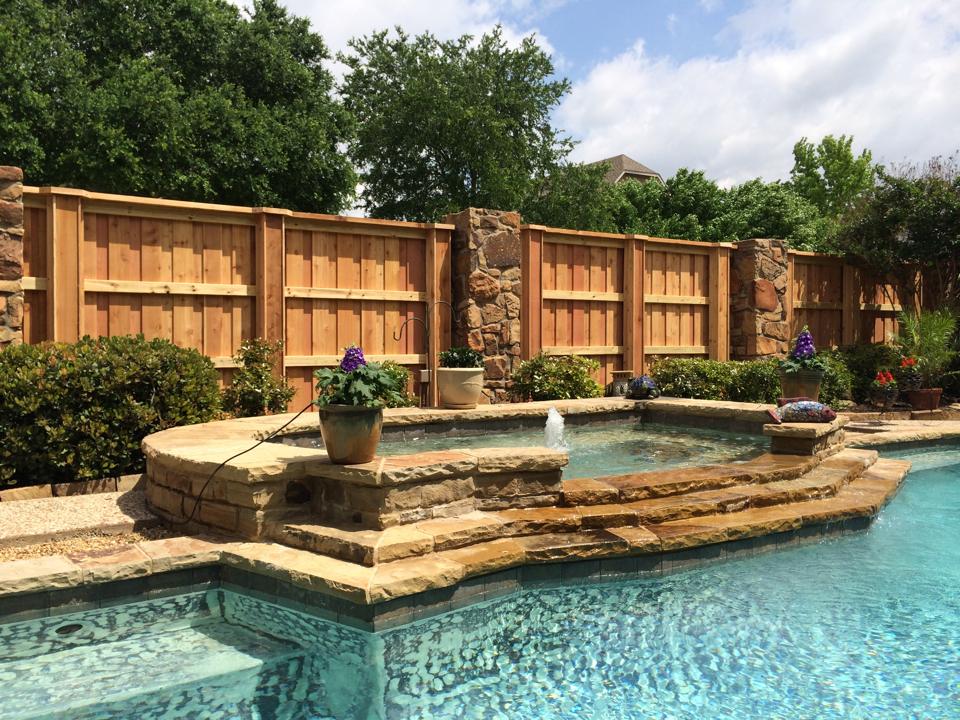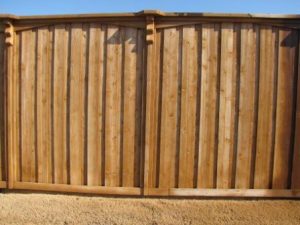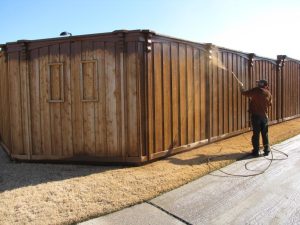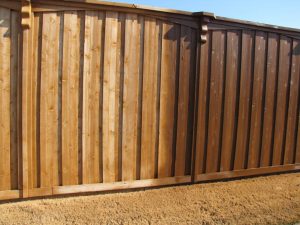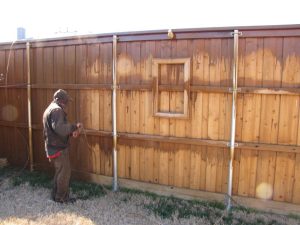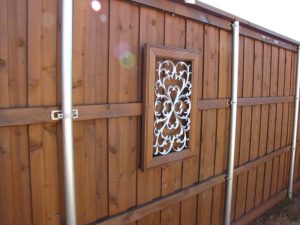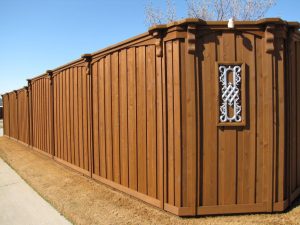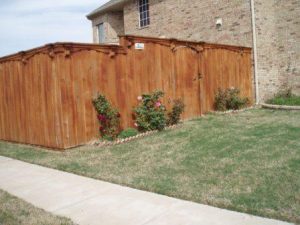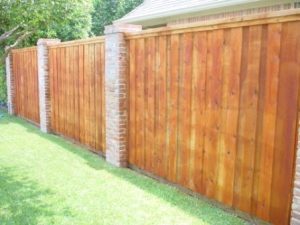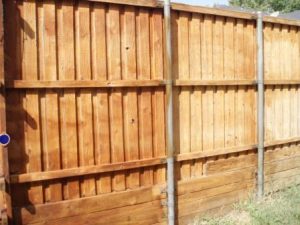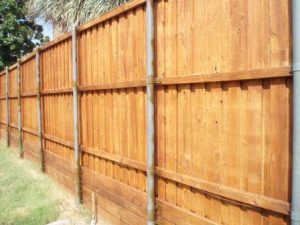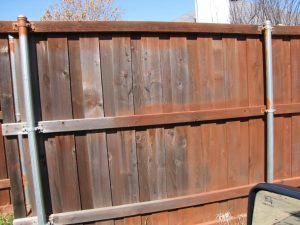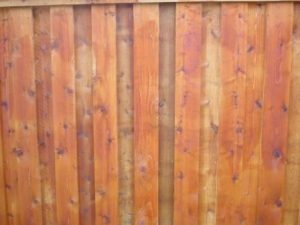Stain & Sealer
Staining / sealing your new fence is another area where you are going to hear different opinions as to what is best. We base our opinion on over 30 years of hands on observation, common sense and a little science. Let’s tackle the biggest issue first….
Dipping vs. Spraying
DIPPED FENCE MATERIALS are boards that are dunked in stain then re-bundled for sale “pre-stained” at the fence supply. This sounds like a great idea right? Well there are a few things you should seriously consider first.
Most “dippers” are dipping wet lumber. Cedar is shipped from the mill soaking wet with water and wrapped in a plastic cover to retain the moisture for shipping and optimum storage. Most dippers do not have the proper facilities to rack, stabilize & store (for weeks) thousands of boards to let each one dry properly before dipping it in the stain. This process takes too long and is expensive, so they dip-em wet and send them out the door!
Here’s where the science comes in….
WATER & OIL DON’T MIX!
Wet wood will not absorb oil based stain. All you get is a light surface coat that won’t last and washes off. Don’t be fooled! Pre-stain / dipping is a great concept, unfortunately they are not following the proper procedures. Take a look at the pictures below to see how the stain on one of our competitors fence is simply washing off from the recent rains. There are going to be a lot of very disappointed “dipped” fence owners next year!
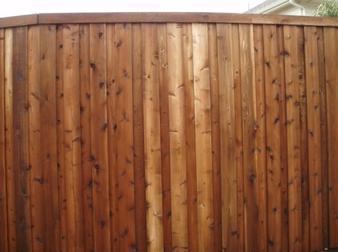
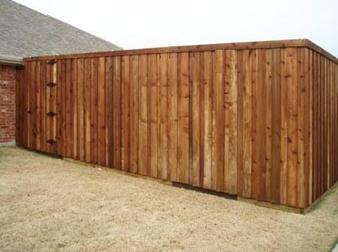
All quality fences are “custom built” one piece at a time to fit your yard and suit your needs. That means that most (if not all) of the boards are cut at the ends to fit where they need to go. Cutting the boards removes the sealed end. The ends of the boards are the most absorbent part. We don’t know anyone who re-seals the ends of each board as they are installed. Too slow & too messy.
Dipped lumber from wholesalers cannot be returned for a credit. Damaged, ugly, cracked or warped boards cannot be sorted and returned. What you buy is what you get, no returns. So the homeowner gets lumber that could have been otherwise sorted through and only the good wood installed.
Sprayed Fence Materials:
We recommend spraying the fence with an oil based stain/sealer a couple of weeks after the fence is complete. This is why…
We have several vendors that allow us to return ugly boards. This way we can buy extra so we have a better selection as we build. The ugly / defective lumber goes back for a credit and you don’t get charged for it & neither do we. You get a better quality, better looking fence at no additional cost.
Cedar is a soft, porous wood. It is 100% soaked with water when new. This causes the pickets to swell. As the water evaporates from the wood it shrinks and becomes lighter in color. As the cedar drys, it becomes quite thirsty and will soak up the oils in the sealer like a dry kitchen sponge. The deeper the oil can soak in, the longer it will last. It’s that simple.
There is a time limit on how dry the cedar can get before it will shrink so much that it can start cracking, peeling or warping. The trick is to seal in about 2-4 weeks after the fence is complete. This seals in the moisture at the inner core and oils the outer layers. This will allow the wood to dry at a slower, more graceful pace resulting in fewer cracks and blemishes.
Do it yourself vs. hire a pro??
Here is another very important subject to be considered.
Unless you are a skilled painter and have experience with outdoor stains you should not attempt to stain the fence yourself!
We see new fences everyday that have been ruined by someone trying to save $150 by doing it themselves. Trust us when we say “it’s not worth it”.
We know….our local home center’s make it sound so cheap & easy… tempting isn’t it??
Think About This…
What happens if you mess it up like these people?……. They call it “stain” for a reason.
You get only one chance to get it right, a botched stain job is hard and costly to cover up.
Are you willing to risk ruining your new $8,000.00 fence to “save” $150.00 ??
The biggest issue that leads to bad stain jobs is the amount of stain that it takes to sufficiently cover a fence. The label on the can says one thing and reality is another. It takes two or three good heavy soaking coats of sealer in order to get the color even. Then, you have to allow for some over spray and other waste. By the time it’s all over you have spent more on stain than you would have spent hiring a pro…. and you still have a huge mess to clean up!
Sealer is best when sprayed on vs. brushing or rolling. The idea is to “soak” the fence so sealer runs in all the cracks and joints. Over spray on bushes, cars, bricks and neighbors things can be a big problem if you are not careful. The pros deal with this everyday and have many techniques to avoid problem over spray.
Please contact our friends at www.UltimateWoodCare.com for more information!
